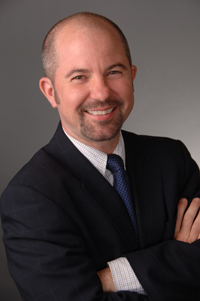
A tremendous body of social science has been laid out in this trial so far, and it has shown the irrationality of discrimination against LGBTQ people and our families in a truly unprecedented way. This morning’s first witness was Dr. Michael Lamb of Cambridge University. He is an expert in child and developmental psychology and has authored or edited more than 40 books and 500 articles on the subject. Dr. Lamb testified that there is substantial evidence showing that the children of same-sex couples would be better adjusted if their parents could marry, because children in general do better when their parents have adequate social support.
Dr. Lamb also testified unequivocally, based on the vast body of social science research in the field, that children of LGBTQ parents are just as well off psychologically as other children. Dr. Lamb did testify that there is one difference between children of LGBTQ parents and other children – on average, they grow up with less sex-stereotyped attitudes.
Dr. Lamb strongly refuted the Prop 8 proponents’ claim that it is necessary for children to have a male biological parent and a female biological parent in the home, undercutting one of their primary arguments. He testified that there is an “overwhelming consensus” among developmental psychologists today that gender is irrelevant to parenting. Dr. Lamb confirmed that the most significant factors for children’s psychological well-being are the love and support they get from their parents, and the stability of their relationships with both parents. Those factors do not favor different-sex parents over same-sex parents – rather, they suggest the importance of providing all families with the social and legal support needed to ensure that they can provide a stable, loving environment for their children, such as through marriage.
During the aggressive and lengthy cross-examination by attorney David Thompson, which lasted well into the afternoon, Dr. Lamb held firmly to those conclusions. Thompson relied on offensive stereotypes about men, attempting to press Dr. Lamb into agreeing that gender does matter in parenting and that children of LGBTQ parents are at a disadvantage. But Dr. Lamb calmly, politely, and consistently testified that when it comes to the traits that a good parent needs, gender makes no difference. He refuted every one of the sources that Thompson cited purporting to show that children raised by same-sex parents have more difficulties. For instance, when Thompson mentioned studies allegedly showing that children who grow up without a father in the home have more difficulties, Dr. Lamb patiently explained that those studies actually demonstrate the detriment that the trauma of divorce or the loss of a parental figure have on children’s emotional well-being. It was clear by the end of Dr. Lamb’s testimony that there is simply no credible evidence to suggest that the gender or sexual orientation of a child’s parents makes a bit of difference to mental health outcomes.
Asian-American author and activist Helen Zia was the final witness of the week. Under direct examination by Danny Chou, deputy city attorney with the City and County of San Francisco, she testified about a number of encounters with hurtful homophobic prejudice that kept her closeted for years. Zia described some of the shocking abuse she experienced from strangers during the Prop 8 campaign, including being called a “f—ing dyke” and being told she would “rot in hell.”
Zia also shared the love story of her courtship and marriage with her wife, Lia. Zia described how they registered as domestic partners with the City of San Francisco years ago at a window in City Hall that “also gave out dog licenses.” When they registered as domestic partners with the state of California a few years later, she said, they didn’t even get to go to a “dog-license window” – they simply filled out a form and mailed it in. But it was when the couple finally legally married in 2004 – though that marriage was invalidated by the California Supreme Court five months later – that they finally experienced, for the first time, a taste of true equality. (Zia and her wife subsequently re-married in 2008, during the period before Prop 8 passed.)
Zia testified that once they married, both of their families finally recognized them as part of the family, rather than, for example, referring to Lia as “Helen’s friend.” She described the moving scene just a few months ago when the couple visited Lia’s father, who has since passed away, in hospice. The hospice staff asked, “Are these your daughters?” and he replied proudly, “No, this is my daughter, and this is my favorite daughter-in-law.”
Stories like Helen Zia’s make it impossible to ignore the pain that anti-LGBTQ bigotry, exacerbated by legal inequality, causes every member of our community. It’s difficult to listen to these stories and be reminded of the hurt and shame that we often try to suppress. But Zia’s story also carries in it the seeds of hope – the genuine joy that wells up when LGBTQ people experience true acceptance. Every person deserves that feeling of acceptance and support. That is what this case is fighting for.









